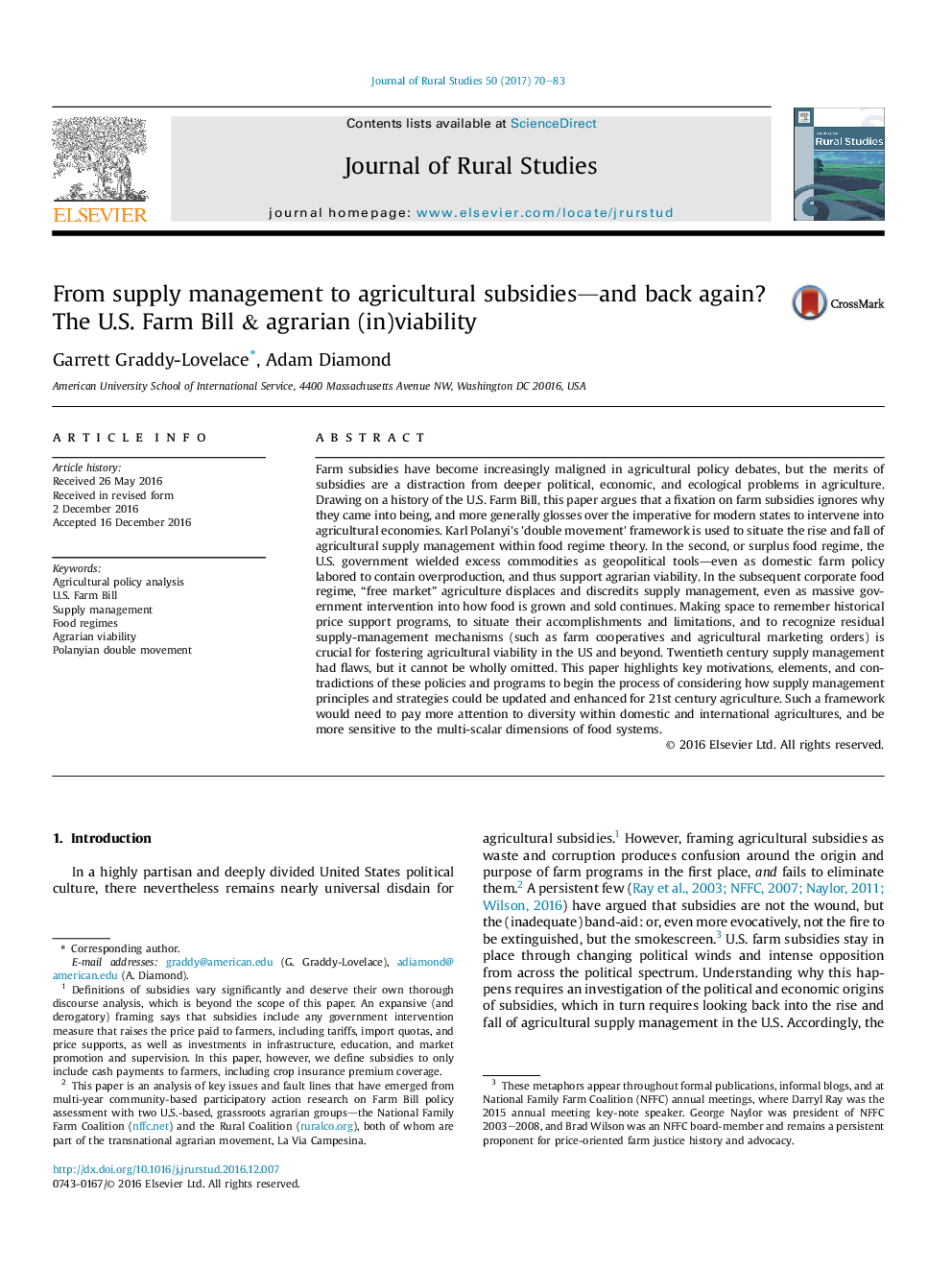| Article ID | Journal | Published Year | Pages | File Type |
|---|---|---|---|---|
| 4759946 | Journal of Rural Studies | 2017 | 14 Pages |
Abstract
Farm subsidies have become increasingly maligned in agricultural policy debates, but the merits of subsidies are a distraction from deeper political, economic, and ecological problems in agriculture. Drawing on a history of the U.S. Farm Bill, this paper argues that a fixation on farm subsidies ignores why they came into being, and more generally glosses over the imperative for modern states to intervene into agricultural economies. Karl Polanyi's 'double movement' framework is used to situate the rise and fall of agricultural supply management within food regime theory. In the second, or surplus food regime, the U.S. government wielded excess commodities as geopolitical tools-even as domestic farm policy labored to contain overproduction, and thus support agrarian viability. In the subsequent corporate food regime, “free market” agriculture displaces and discredits supply management, even as massive government intervention into how food is grown and sold continues. Making space to remember historical price support programs, to situate their accomplishments and limitations, and to recognize residual supply-management mechanisms (such as farm cooperatives and agricultural marketing orders) is crucial for fostering agricultural viability in the US and beyond. Twentieth century supply management had flaws, but it cannot be wholly omitted. This paper highlights key motivations, elements, and contradictions of these policies and programs to begin the process of considering how supply management principles and strategies could be updated and enhanced for 21st century agriculture. Such a framework would need to pay more attention to diversity within domestic and international agricultures, and be more sensitive to the multi-scalar dimensions of food systems.
Related Topics
Life Sciences
Agricultural and Biological Sciences
Forestry
Authors
Garrett Graddy-Lovelace, Adam Diamond,
